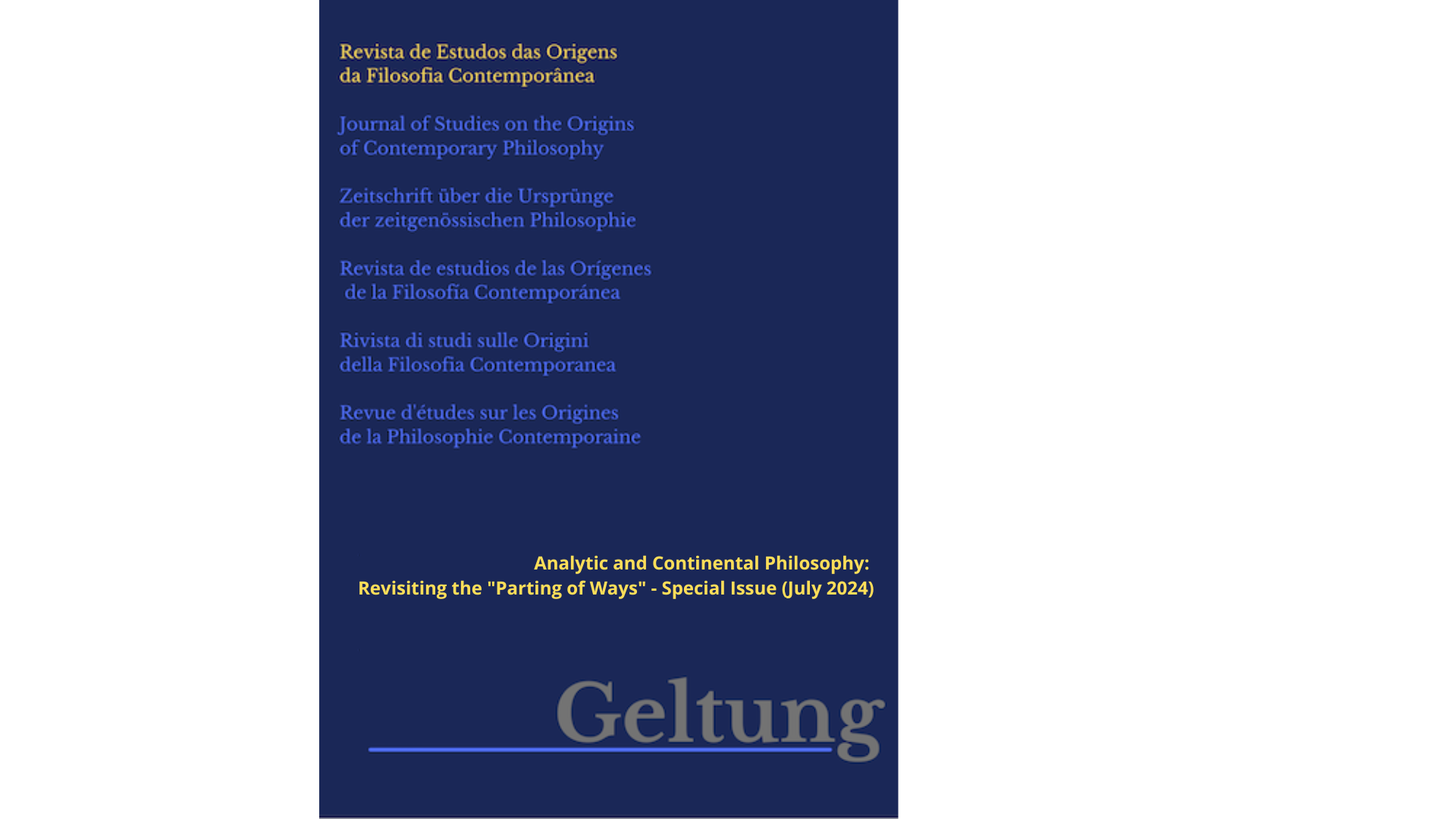Filosofia versus a distinção continental/analítica
DOI:
https://doi.org/10.23925/2764-0892.2024.v2.n2.e66317Palavras-chave:
Analítica/Continental, Profissionalização, Universidade, História da filosofiaResumo
A distinção entre filosofia analítica e continental não é uma distinção filosófica. É uma distinção sociológica, que incorpora dimensões políticas e psicológicas. Vou argumentar que essa distinção é um sintoma, mais relevante, da profissionalização, e que a profissionalização exclui a filosofia. Como resultado, a única consequência filosoficamente significativa que a distinção analítica/continental tem é nos alertar, por contraste conceitual, sobre com o que deveríamos nos preocupar em vez disso. Esse foco alternativo são os contextos e características a-profissionais da filosofia real. A distinção analítica/continental nos aponta útilmente para esses como sendo aquilo para o qual a estrutura específica e os efeitos disciplinares dessa distinção são totalmente irrelevantes.
Referências
COLLINS, Randall. The Sociology of Philosophies: A Global Theory of Intellectual Change. Cambridge, MA: Harvard University Press, 1998.
CUSSET, François. French Theory: How Foucault, Derrida, Deleuze, & Co. Transformed the Intellectual Life of the United States. Translated by Jeff Fort with Josephine Berganza and Marlon Jones. Minneapolis, MN: University of Minnesota Press, 2008.
DERRIDA, Jacques. Points . . .: Interviews, 1974-1994. Edited by Elisabeth Weber. Translated by Peggy Kamuf et al. Stanford, CA: Stanford University Press, 1995.
EMERSON, Ralph Waldo. Intellect. The Essential Writings of Ralph Waldo Emerson. Edited by Brooks Atkinson. New York: The Modern Library, 2000.
EMERSON, Ralph Waldo. Self-Reliance. The Best of Ralph Waldo Emerson: Essays, Poems, Addresses. Edited by Gordon S. Haight. New York: Walter J. Black, 1941.
GILDEA, Niall. Jacques Derrida’s Cambridge Affair: Deconstruction, Philosophy and Institutionality. New York: Rowman & Littlefield, 2020.
GOETHE, Johann Wolfgang von. Maxims and Reflections. Translated by Elizabeth Stopp. Edited by Peter Hutchinson. New York: Penguin, 1998.
GRAFF, Gerald. Professing Literature: An Institutional History. Chicago, IL: The University of Chicago Press, 2007.
HAMLYN, D. W. Being a Philosopher: The History of a Practice. New York: Routledge, 1992.
HANNA, Robert. The Fate of Analysis. New York: In the Weeds, 2021.
KANT, Immanuel. Critique of Pure Reason. Translated by Norman Kemp Smith. New York: St Martin’s Press, 1929.
LUCAS, Christopher J. American Higher Education: A History. New York: St. Martin’s Griffin, 1994.
MARÍAS, Julián. Philosophy as Dramatic Theory. Translated by James Parsons. University Park, PA: The Pennsylvania State University Press, 1971.
MENAND, Louis. The Marketplace of Ideas: Reform and Resistance in the American University. New York: W. W. Norton and Company, 2010.
OGILVY, James (Ed.). Revisioning Philosophy. Albany, NY: State University of New York Press, 1992.
ORTEGA y Gasset, José. Some Lessons in Metaphysics. Translated by Mildred Adams. New York: W. W. Norton & Company, 1969.
PRESTON, Aaron. Analytic Philosophy: The History of an Illusion. London: Continuum, 2007.
RAPAPORT, Herman. The Theory Mess: Deconstruction in Eclipse. New York: Columbia University Press, 2001.
READINGS, Bill. The University in Ruins. Cambridge, MA: Harvard University Press, 1996.
RYLE, Gilbert. Dilemmas. New York: Cambridge University Press, 1954.
VANHOUTTE, Kristof K. P. There Is No Such Thing as ‘Continental’ Philosophy. Paris: PICT Books, 2023.
WORTHAM, Simon Morgan. Counter-Institutions: Jacques Derrida and the Question of the University. New York: Fordham University Press, 2006.
Downloads
Publicado
Como Citar
Edição
Seção
Licença
Copyright (c) 2024 Geltung, revista de estudos das origens da filosofia contemporânea

Este trabalho está licenciado sob uma licença Creative Commons Attribution 4.0 International License.







